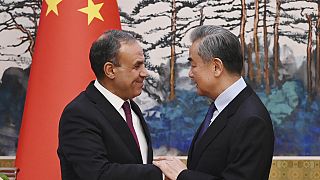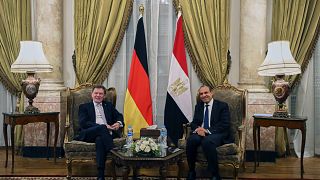Egypt
The Egyptian government has embarked on an ambitious reform programme aimed at revitalizing the economy.
The north African country which has been facing serious economic challenges since the 2011 revolution hopes that sweeping reforms over the next three years, will boost foreign investment and ignite its manufacturing sector.
Egypt’s minister of internatinal cooperation, Sahar Nasr, revealed this during and an interview with the AFP.
“We are very keen on the participation of the private sector. So the key of the reform program is improving the business environment. And encouraging industrialization. And also promote the exports. We are working on various incentives and legislative reforms that will make the business environment more conducive to private sector development.”
Nasr went further to hail the move taken by the central bank in November to float the tightly controlled Egyptian pound, with the aim of reversing capital flight.
“The third pillar is obviously monetary reforms which has been led by the central bank, the devaluation that we all witnessed. That’s a major step in terms of economic stability and overall economic growth because it will help promote exports. It will put Egypt at a more competitive edge.”
Floating the currency was one of the several requirements that Egypt had to meet to get the approval for a $12 billion loan from the International Monetary fund (IMF).
But the move has led to soaring of prices for basic commodities in the country forcing consumers to take part in boycotts in oder to force retailers to push prices down.
With poverty rates at nearly 28 percent, unemployment at almost 13 % and public debt at 100% of GDP, Egypt is betting on these reforms to turn around its fortunes.
The government projects that the reform program will significantly enhance competitiveness and transparency and says that 22 new business clusters will be established by 2020.
It is also targeting economic growth of 6%, decrease budget deficit to 10% from the current 12.2% and reduce the public debt to levels to below 88% of GDP by 2018.





![Cyber Africa Forum highlights Benin's bold digital resilience [Business Africa]](https://static.euronews.com/articles/stories/09/33/14/38/320x180_cmsv2_675083a0-3d42-5b59-aba8-cbd15242e6d9-9331438.jpg)







01:05
Ethiopia's mega-dam on the Nile is "now complete", Prime Minister says
01:51
WEF's Summer Davos focuses on entrepreneurship and innovation
01:08
OECD revises forecast, projects slowdown in global economic growth
01:05
U.K-Egypt: Mother of jailed activist hospitalised amid hunger strike
01:01
AfDB downgrades Africa growth outlook but sees signs of resilience
02:20
Tarik Saleh returns to Cannes with explosive political thriller ‘Eagles of the Republic’